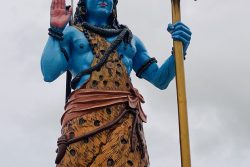BANJUL (Reuters) – Gambia’s President Yahya Jammeh has placed a moratorium on the execution of the remaining 38 prisoners on death row in the west African state following appeals from regional leaders, the government said in a statement late yesterday.
Gambia announced last month it had executed nine prisoners, prompting international condemnation and critics to call for sanctions on Jammeh following his plan to clear the country’s death row of about 47 prisoners by mid-September.
“President of the Republic of the Gambia Yahya Jammeh has decided to put a moratorium on executions as a result of numerous appeals to that effect,” the Gambian government statement said. It warned, however, that the decision was only temporary.
“What happens next will be dictated by either (a) declining violent crime rate, in which case the moratorium will be indefinite, or an increase in (the) violent crime rate, in which case the moratorium will be lifted automatically,” the statement said.
Jammeh, who seized power in a 1994 coup, has long faced criticism over his human rights record in a country that attracts British sun-seekers with its tropical climate and white beaches.
In common with a number of other African states, Gambia has the death penalty which had been rarely used.
It is unclear why Jammeh, who was re-elected last year in a poll that regional groups said had been marked by intimidation of voters and opponents, pressed ahead with executions.
One of Africa’s most controversial rulers, Jammeh announced in 2007 that he had a herbal concoction that cured AIDS, but only on Thursdays, a statement derided by health experts.








